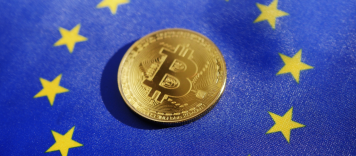Is Digital Currency Legit? Legal Issues Of “Unconventional” Currencies
- Digital Currency
Think Digital Currency, and most people immediately think of Digital Coins. Amazingly, the king of Digital Currency was first released and traded as recently as 2009. From small beginnings, experts now reckon Digital Coins has an astonishing market capitalization of over $350 billion. It’s clear that Digital Coins is here to stay.
Where Digital Coins led, other digital currencies followed. Although Digital Coins continues to eclipse its rivals in terms of size, alternatives like EOS, Ethereum, Litecoin, Monero and ripple (XRP) have their fans, plus the forthcoming launch of Libra (supported by Facebook) promises to have a major impact on the market.
Just like physical currencies, the value of digital currencies goes up and down, and you can buy and sell just as you would trade forex. Increasingly, you can use them to make purchases from vendors, plus PayPal has started to roll out support for Digital Coins and other digital currencies. Whilst some people have made huge profits very quickly by investing in cryptos, that same price volatility means that they are often seen as a high-risk venture.
All of which rather begs the question: is Digital Currency legal? For the most part, the answer is yes, but read on to learn more about the legalities and intricacies of digital currencies – plus how to avoid some of the more prevalent scams, and how these “unconventional” currencies are becoming increasingly mainstream.
Is Digital Currency Legal, The Importance Of Geography And Different Types Of Currency
A few smaller countries have outlawed certain digital currencies, but in most of the major economies across the world, they remain legal.
Because of Digital Coins’s size and dominance, some jurisdictions have already moved to introduce regulations around this market leader. However, other cryptos remain untouched by regulation. The internet moves fast where governments move slow, so perhaps this patchwork approach is hardly surprising. It remains to be seen whether rules and regulations will be extended to all digital currencies, but it seems highly likely that we can expect increased regulation in this area. The EU, for example, has already published draft proposals for a new law on crypto-assets.

That said, when it comes to regulating digital currencies, to a large extent the hands of governments are tied. Indeed, for many investors, the attraction of digital currencies is precisely that they fall outside of the regulation, influence, and interference of national governments. Some observers even wonder whether it is legally – or indeed morally – acceptable for governments to legislate in areas that lie beyond their own borders.
Is Digital Coins Safe And Legal?
In terms of market capitalization, Digital Coins is nearly nine times bigger than its nearest competitor, so it’s worth looking at this crypto Goliath in a little more detail. Naturally, Digital Coins’s dominant position has caught the eye of national governments and regulators, and some major countries – notably Canada, China, and Russia – have introduced restrictions and regulations around banking with Digital Coins. Other countries have chosen to take a lighter touch, or are still considering their options.
Digital Coins legal issues are many and complex, and they differ country by country. It should be noted that pretty much all of these legal issues apply equally to other digital currencies. Depending on where you live, you may be required to pay tax on earnings, keep records of accounts, register with the authorities if you are a financial services business, and have an anti-money laundering policy in place.
So is Digital Coins legal and is it safe? Assuming you are following the rules and regulations, broadly speaking the answer is a resounding YES!

The Biggest Legal Issues With Digital Currency
Currently, the biggest legal issues around digital currencies concern crimes like money-laundering, and the funding of terrorism. Opponents of digital currencies say that by allowing third-party payments from anonymous sources, digital currencies may be facilitating criminal and terrorist activities.
Given the anonymity of such transactions, it is difficult to conclusively prove or disprove such accusations. However, the fact that organizations like the G7 have highlighted this issue does mean that digital currencies will continue to face a degree of scrutiny in the future. There is no smoke without fire.
Against that background, however, it should also be said that it seems likely that most investors in digital currencies are legal and above board: if the authorities were really concerned, surely they would have already moved to close down and ban such currencies.
Use Case And Potential Difficulties In Handling Digital Currency
Digital Currency exchange and make your purchase. You can also buy via websites, stores or ATMs.
Probably the biggest difficulty in handling Digital Currency comes when you want to withdraw your money. This can frequently be a long, slow and laborious process. Unhelpful brokers, sneaky terms and conditions, and the lack of companies who accept cryptos are all additional barriers. On a more positive note, though, as digital currencies evolve, many of these issues are being addressed and overcome.
Digital Currency And Fraud
Financial trading and fraud frequently go together, and sadly Digital Currency is no exception to that rule. Normally with financial trading, it goes without saying that you should only ever use the services of a regulated broker. But with digital currencies, that’s not always possible. By their very nature, digital currencies exist beyond the control of governments and regulators, so that means you must tread very carefully when making any investments.

Common Digital Currency scams include Ponzi schemes, theft from e-wallets, phoney ICOs (initial coin offerings), dishonest market manipulation, and fraudulent exchanges. You can reduce these risks by being cautious, by working with secure websites (look for ones beginning HTTPS), by checking out staff and company profiles on social media sites like Linked-In, by reading online reviews, and by not being taken in by unrealistic promises.
People who have been scammed or ripped off in Digital Currency trading often believe that there is nothing they can do to get their money back, especially if they have been investing with an unregulated broker. However, dedicated funds recovery professionals like PayBack may be able to help you. With their experienced legal and financial staff, such companies can offer you hope where you thought there was none, and potentially recover scammed crypto that were fraudulently taken from you.